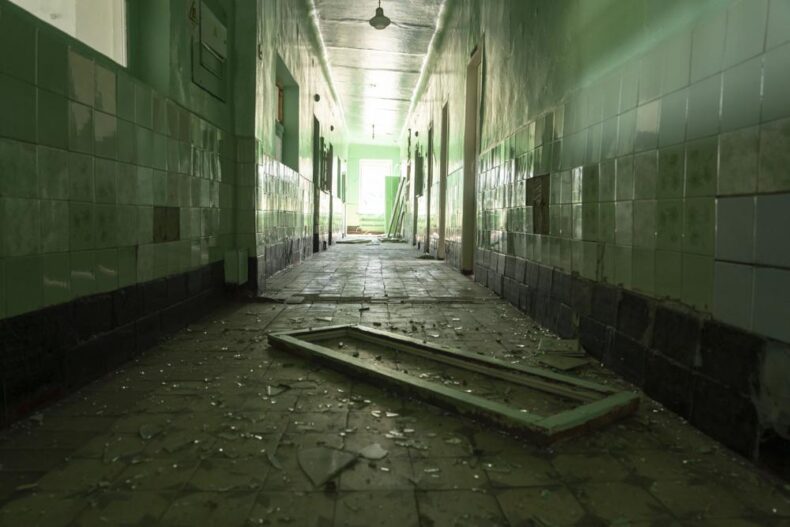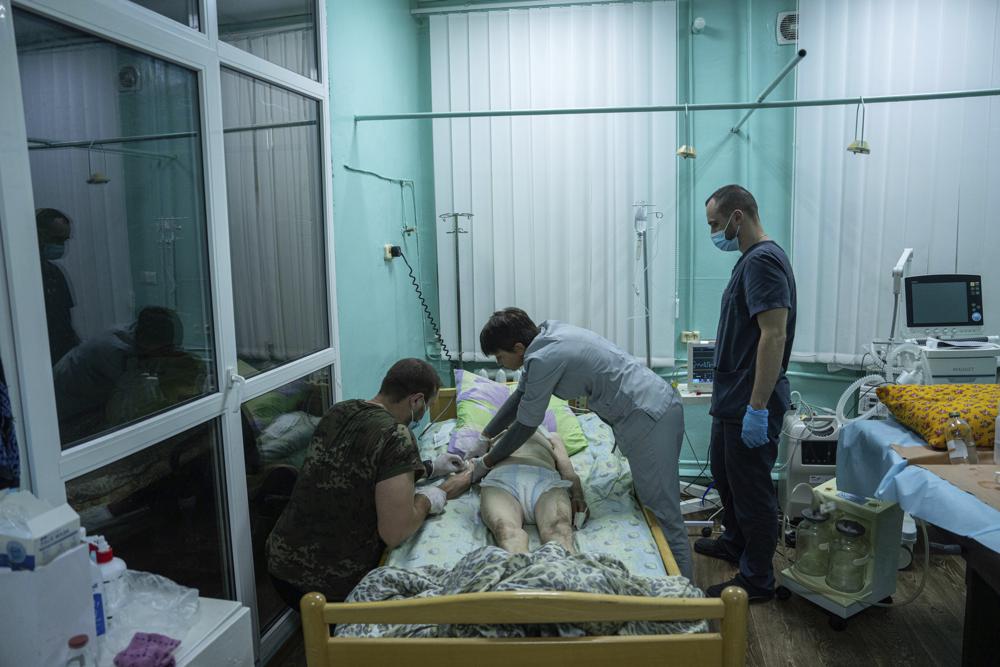
Corruption, mismanagement, and the COVID-19 pandemic have plagued Ukraine’s healthcare system for years. However, the war has exacerbated the situation, with facilities damaged or destroyed, medical personnel relocated to safer locations, and many drugs unavailable or in short supply. Doctors who have refused to evacuate or who have rushed in as volunteers, risking their lives, are providing care in the worst-affected areas.
Dr. Ilona Butova almost looks out of place in her neatly pressed lavender scrubs as she walks through a door frame that hangs from a crumbling wall into what used to be an administrative office of her hospital in Zolochiv. Artillery shells hit every building in the facility in the northeastern Ukrainian town near the Russian border.
Since Russia’s invasion on February 24, the hospital’s capacity to treat patients has been constantly reduced due to damage. Her staff has been reduced from 120 to 47. And the number of people seeking treatment in the small town 18 kilometers (11 miles) from the border is frequently higher now than before the fighting began.
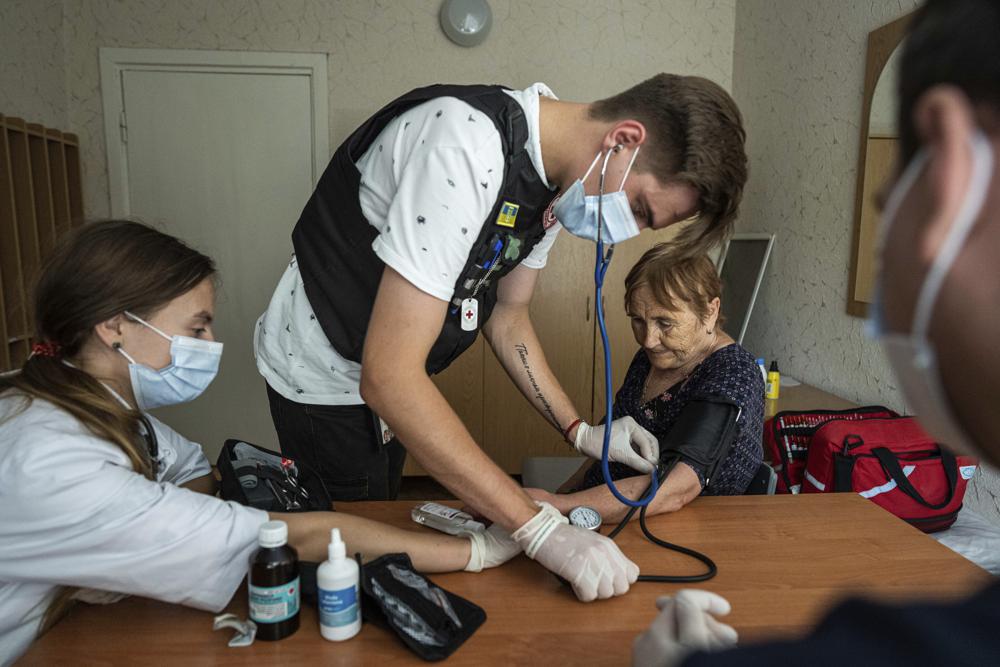
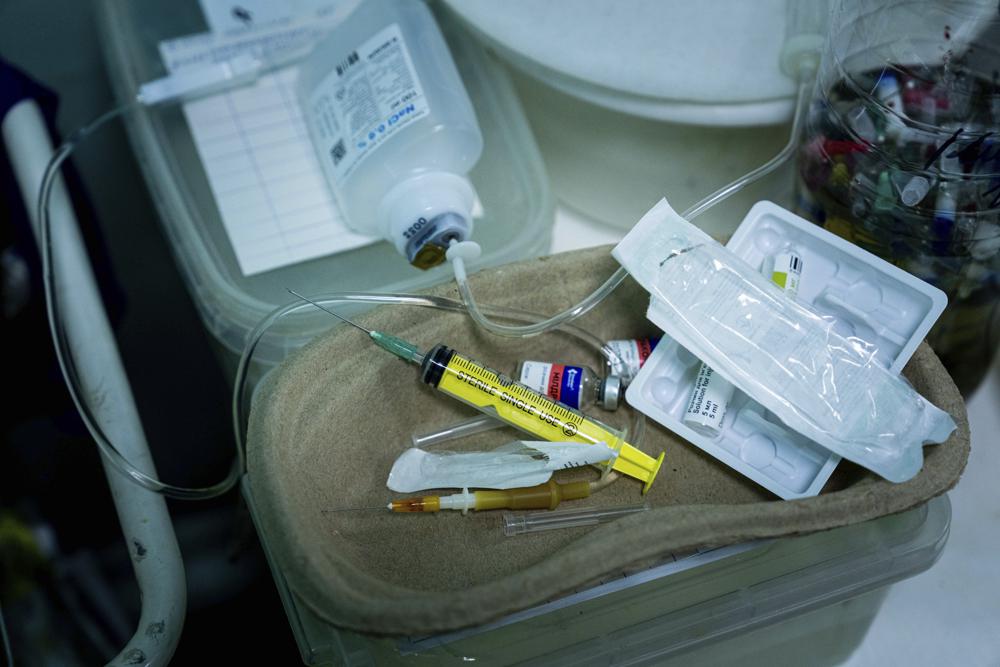
The country’s healthcare system has been plagued by corruption, mismanagement, and the COVID-19 pandemic for years. However, the war has only exacerbated the situation, with facilities being damaged or destroyed, medical personnel being relocated to safer locations, and many drugs being unavailable or in short supply.
Doctors who have refused to evacuate or who have rushed in as volunteers, putting themselves in danger, are providing care in the hardest-hit areas. “It’s difficult, but people depend on us.” “We have to stay and help,” said Bulova, a neurologist who also serves as the hospital’s administrator in a town near Kharkiv, Ukraine’s second-largest city. She went on to say that she has had to do more with less.
The World Health Organization declared a state of emergency in Ukraine the day after the invasion, coordinating a massive relief effort there and in neighboring countries whose medical systems are also under strain.
United Nations estimates that approximately 6.4 million people have fled to other European countries, with a slightly higher number internally displaced. This poses a significant challenge to a healthcare system based on family doctor referrals and regionally separate administrations.
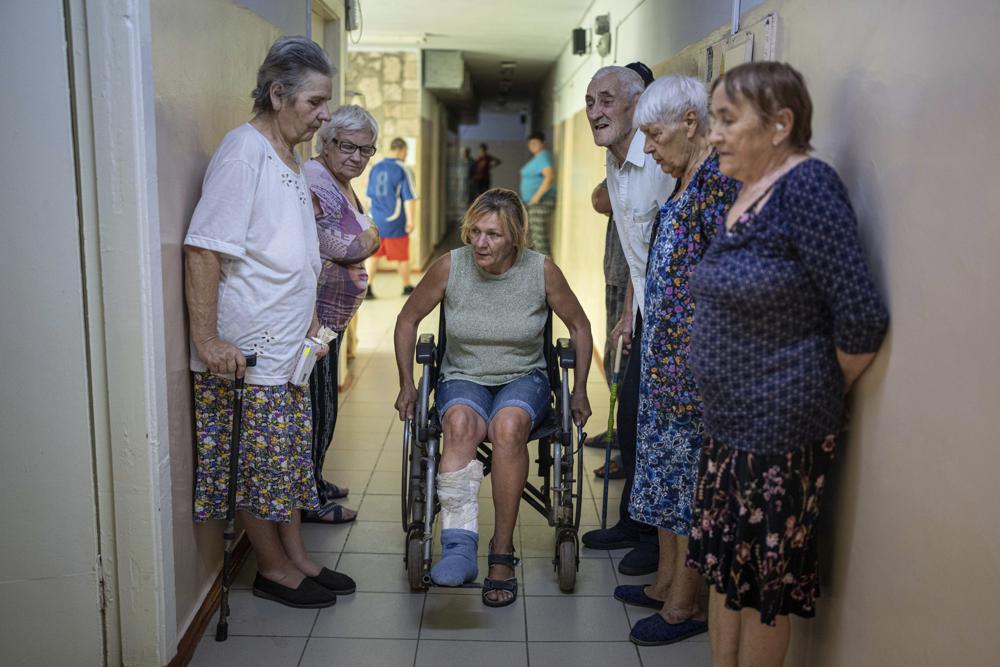
900 hospitals in Ukraine have been damaged, and another 123 have been destroyed, according to Health Minister Viktor Liashko, who added, “Those 123 are gone, and we’re having to find new sites to build replacements.”
” Moreover, he said, scores of pharmacies and ambulances have been destroyed or severely damaged, and at least 18 civilian medical personnel have been killed and 59 others seriously injured. “The referral system has completely broken down in occupied areas,” Liashko told The Associated Press. “People’s health and lives are in jeopardy.”
The conflict with Moscow-backed separatists in eastern Ukraine, which began in 2014, depleted Kyiv’s economy. When President Volodymyr Zelenskyy took office five years later, he inherited a health-care system weakened by reforms initiated by his predecessor, which reduced government subsidies and forced the closure of many small-town hospitals.
People in those communities had to seek care in large cities during the pandemic, sometimes waiting up to eight hours for an ambulance in severe COVID-19 cases. As Russia has expanded its control over eastern and southern Ukraine, the supply of drugs in those areas has dwindled, as has the medical staff to administer them. “Things have been very difficult” in the southern frontline town of Mykolaiv, according to volunteer Andrii Skorokhod.
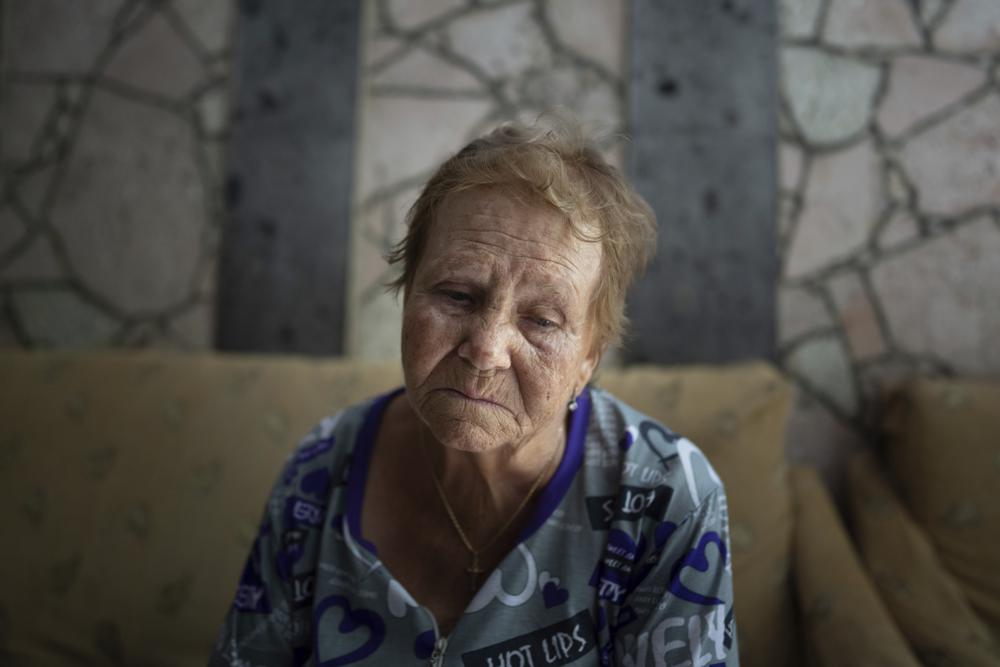
“Pharmacies have been closed, and shortages have become increasingly severe: hospital staff, including specialists, were among those evacuated.” “We just need more staff,” said Skorokhod, who oversees a Red Cross initiative to provide free medications to residents.
Volunteers such as Skorokhod saved the life of Vanda Banderovska, 79, whose home near Mykolaiv had been destroyed by Russian artillery. Her 53-year-old son, Roman, was killed, and she was taken to the hospital with severe bruises and was barely conscious.
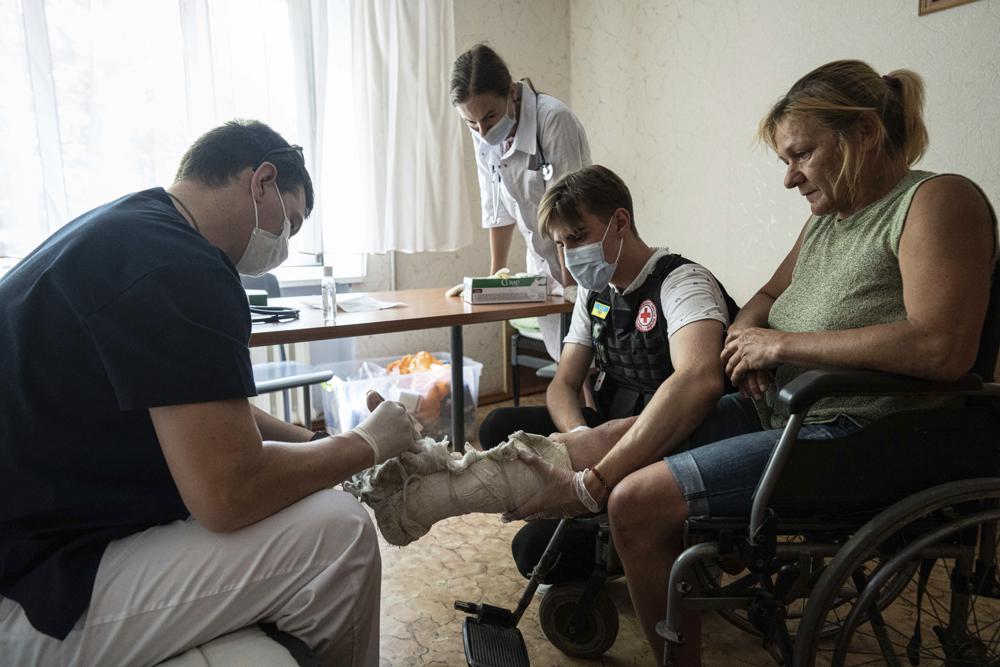
“When the Russians started shelling, my son went out to his car to get his phone.” “He was hit in the head,” she said in a hospital recovery room, her voice shaking with emotion. “They’ve destroyed everything, and I have nothing left,” Banderovska said, expressing her gratitude to those who saved her life while also being overcome by grief and anger. “The pain I’m experiencing is excruciating. “I was bruised, black, and blue when doctors took me to the hospital, but I gradually recovered,” she explained.
By Harsha Josephine Antony | On Fri 19 Aug 2022 | 8.00 pm IST |
Photo credit: Associated Press







